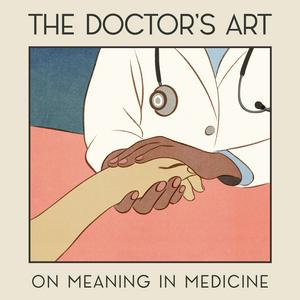Medicine is often framed as a meritocracy, where intelligence, hard work, and dedication dictate success. Yet, institutions of medicine are shaped by histories of exclusion, bias, and systemic inequities. And for clinicians coming from marginalized backgrounds, the journey is not just about learning the science. It's also about learning an entirely different set of rules — rules that are unspoken and unwritten, but deeply felt. For Damon Tweedy, MD, this struggle was deeply personal. Raised in a working class, all-black neighborhood, medicine once felt worlds away. Earning a spot at Duke Medical School was a milestone, but it came with new challenges. The paradox of being both visible and invisible; of constantly proving — sometimes subtly, sometimes forcefully — that he belonged. Dr. Tweedy talks about the paradox of striving to be “twice as good,” while still being mistaken for the janitor, turning down an invitation to play golf with faculty because he simply did not know the game, and realizing that for some of his classmates, medicine was not a leap into the unknown, but simply an inheritance. Beyond race, this episode is also about identity, resilience, and what happens when personal history collides with professional expectation. It's about how trust in medicine is built or broken not just for doctors, but for patients. Dr. Tweedy shares how his own experiences have shaped the way he interacts with patients, why he approaches conversations with more humility, and why sometimes the most important thing a doctor can do is simply acknowledge the weight that a patient carries into the exam room. Ultimately, this episode is about the search for authenticity in a system that often demands conformity.In this episode, you’ll hear about: 3:24 - Dr. Tweedy’s path to medicine and his experience as a black first-generation college student 14:08 - How Dr. Tweedy navigates experiences of being discriminated against as a black physician24:58 - Dr. Tweedy’s approach to navigating discriminatory experiences between patients and trainees 29:56 - Dr. Tweedy’s path to becoming a public voice regarding race and medicine 32:07 - The current approach to teaching race and medicine in medical school, and Dr. Tweedy’s thoughts on how it can be improved. 43:42 - Effectively serving patients of different racial backgrounds without falling into profiling or prejudice 48:49 - Dr. Tweedy’s advice for new medical students Dr. Damon Tweedy is the author of Black Man in a White Coat (2016) and Facing the Unseen (2024).Dr. Tweedy can be found on Twitter/X at @damontweedymd.Visit our website www.TheDoctorsArt.com where you can find transcripts of all episodes.If you enjoyed this episode, please subscribe, rate, and review our show, available for free on Spotify, Apple Podcasts, or wherever you get your podcasts. If you know of a doctor, patient, or anyone working in health care who would love to explore meaning in medicine with us on the show, feel free to leave a suggestion in the comments or send an email to
[email protected] The Doctor’s Art Podcast 2025

